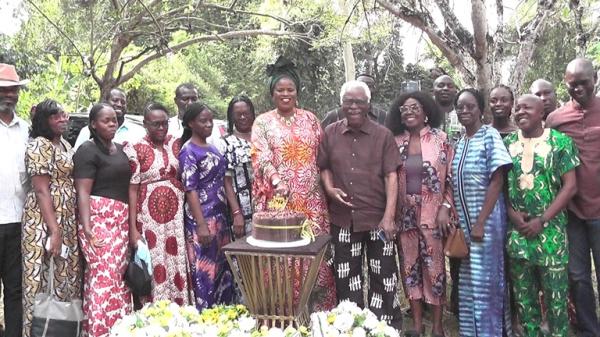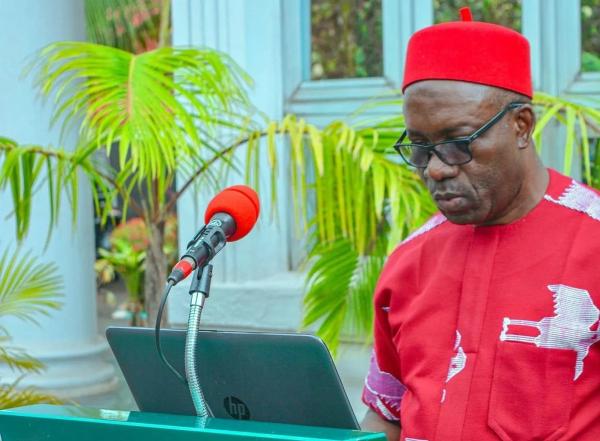
The Executive Secretary of the International Centre for Research and Documentation on African Traditions and Languages (CERDOTOLA), Professor Binam Bikoi has applauded the ingenuity of the African Union (AU) for proclaiming 2021 the “Year of Arts, Culture and Heritage”.
This African Union (AU) theme for 2021 has been argued to be slightly off-topic, as recent AU themes included ending conflict (2020), the plight of refugees (2019), the fight against corruption (2018), empowering the youth (2017) and promoting gender equality (2015, 2016).
This year’s theme was proposed by former Malian president Ibrahim Boubakar Keita, deposed in a coup in August 2020.
Arguably, Mali is one of the African countries best placed to champion such a theme. It has a rich and undervalued cultural heritage – from the Touareg nomads in the desert north, Timbuktu and its ancient scrolls, and the Dogon sites near Mopti and Djenne to the Bambara culture with its rich history and ancestral belief systems.
Yet in the era of COVID-19 and at a time of economic hardship and continuing strife across the continent, prioritizing African Arts, Culture and Heritage will no doubt be a daunting task to accomplish by the AU.
Professor Binam Bikoi noted that culture incorporates social behaviour and norms of a society as well as the language, knowledge, beliefs, traditions, arts, customs, capacities and habits of a certain community and the 2021 theme is a declaration at a continental level for member states to invest more resources in promoting national and regional cohesion by investing in African culture and heritage as a vehicle for promoting and achieving the national economic and social development goals outlined in Africa’s Agenda 2063.
He affirms further that the documents “The AU Year of the Arts, Culture And Heritage: Levers for Building the Africa We Want” outlining the theme of the year, presented at a recent AU summit, recognised the devastation caused by the corona virus pandemic. It also emphasise ‘the role arts, culture and heritage can play as catalysts for the socio-economic development and integration of the African continent’. The project timeline set out by the AU includes events to promote African music, tourism, fashion design and visual arts. He argues that in-country tourism has also become a lifesaver for the tourism industry in many countries. Making citizens more aware of their own heritage at a time they cannot travel abroad is one of the hidden benefits of the pandemic lockdowns.
He also asserts that globally, the Cultural and Creative Industries (CCIs) play a key role in contributing to GDP. Hence, this proclamation grants recognition to the importance of CCIs in achieving the agenda and objectives of regional integration and sustainable economic growth and development. African arts and culture could certainly be used as a vehicle for economic development, notably in promoting the revival of tourism in a post-COVID-19 era. The Year of Arts, Culture and Heritage is happening at a time when the continent is still grappling with the effects of the COVID-19 pandemic which has imposed heavy human, financial and economic costs to Africa.
However, during the pandemic, the Creative and Cultural Industries in Africa have played a key role in contributing efforts towards prevention and combating the spread of COVID-19 and furthermore the increased use of technology has created new spaces for CCIs sector to thrive by using digital platforms to promote their goods and services. The pandemic has provided an opportunity to re-examine the continent’s socio-economic priorities, including the role of cultural workers, towards contributing to building stronger and more resilient health and social sectors, promoting equality, inclusion, social cohesion and African Renaissance, as inspired by the Ubuntu Philosophy ‘I AM because YOU ARE; YOU ARE because I AM’.
Thus, the declaration of 2021 as the year of the Arts, Culture and Heritage will ensure that at continental, regional and national levels, the African Union, its member states and Regional Economic Communities (RECs) working with partners in both public and private sector, will allocate the necessary resources and implement the relevant policies and programmes towards establishing a more robust and sustainable creative industrial sector. In addition, the Theme of the year 2021 will enable the increased advocacy for the ratification of the Charter for African Cultural Renaissance (which to date has only been ratified by 14 of the 55 member states), the implementation of the Plan of Action on Cultural and Creative Industries in Africa which aims to promote the safeguarding, organization, production, marketing, distribution, exhibition and preservation of African cultural and creative industries as well as the teaching of the arts and AU Model Law on the Protection of Cultural Property and Heritage which aims to implement the legislative guidelines for the preservation and protection of Africa’s arts and cultural heritage.






















